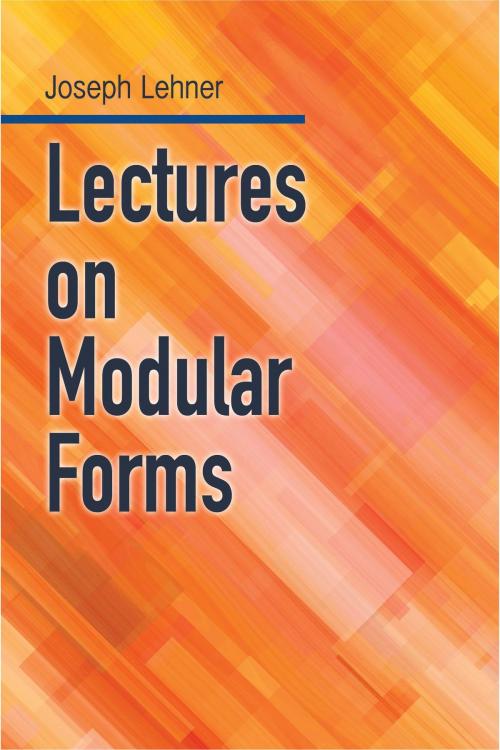| Author: | Joseph J. Lehner | ISBN: | 9780486821405 |
| Publisher: | Dover Publications | Publication: | May 17, 2017 |
| Imprint: | Dover Publications | Language: | English |
| Author: | Joseph J. Lehner |
| ISBN: | 9780486821405 |
| Publisher: | Dover Publications |
| Publication: | May 17, 2017 |
| Imprint: | Dover Publications |
| Language: | English |
This concise volume presents an expository account of the theory of modular forms and its application to number theory and analysis. Suitable for advanced undergraduates and graduate students in mathematics, the treatment starts with classical material and leads gradually to modern developments. Prerequisites include a grasp of the elements of complex variable theory, group theory, and number theory.
The opening chapters define modular forms, develop their most important properties, and introduce the Hecke modular forms. Subsequent chapters explore the automorphisms of a compact Riemann surface, develop congruences and other arithmetic properties for the Fourier coefficients of Klein's absolute modular invariant, and discuss analogies with the Hecke theory as well as with the Ramanujan congruences for the partition function. Substantial notes at the end of each chapter provide detailed explanations of the text's more difficult points.
This concise volume presents an expository account of the theory of modular forms and its application to number theory and analysis. Suitable for advanced undergraduates and graduate students in mathematics, the treatment starts with classical material and leads gradually to modern developments. Prerequisites include a grasp of the elements of complex variable theory, group theory, and number theory.
The opening chapters define modular forms, develop their most important properties, and introduce the Hecke modular forms. Subsequent chapters explore the automorphisms of a compact Riemann surface, develop congruences and other arithmetic properties for the Fourier coefficients of Klein's absolute modular invariant, and discuss analogies with the Hecke theory as well as with the Ramanujan congruences for the partition function. Substantial notes at the end of each chapter provide detailed explanations of the text's more difficult points.















